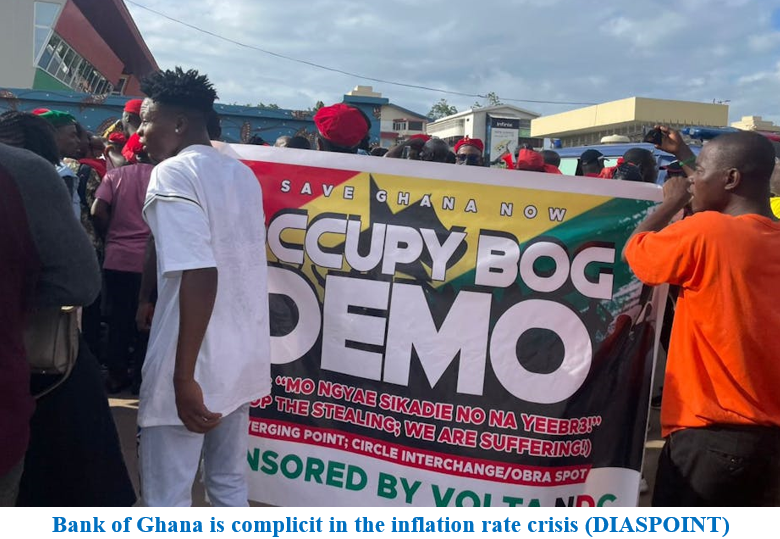Economist says Ghana’s economic crisis was caused by government borrowing – the central bank did the best it could
Post By Diaspoint | June 17, 2024

What was the Bank of Ghana’s role in the inflation rate crisis?
In 2002, Ghana’s parliament enacted the Bank of Ghana Act 612, Section 33(2), granting the central bank flexibility and autonomy in the use of monetary policy to tame inflation and promote economic growth. At the time, Ghana was struggling with high inflation and low economic growth. The inflation rate averaged 28% in the decade before 2002, and real GDP growth per capita hovered around 1.45%.
The bank unofficially targeted inflation from 2002 until 2007. Inflation fell from about 30% in 2003 to about 10% by 2007. Ghana’s real GDP per capita also rose to about 2.71%. The bank adopted inflation targeting as its official monetary policy framework in 2007.
But as I show in my recent paper, the decline in the inflation rate from 2002 to 2007 was largely due to fiscal policy – that is, the government’s use of taxation and expenditure to influence the economy – rather than monetary policy which is about adjusting interest rates to affect the economy. The period 2002-2007 coincided with Ghana’s term under the joint IMF-World Bank debt relief programme (also called the Heavily Indebted Poor Countries initiative). During this period, Ghana’s public debt (as a share of GDP) declined from 58% in 2002 to 22.5% in 2007.
I argue that it is this reduction in government debt that underlies the decrease in Ghana’s inflation rate during this period. The central bank during this period maintained a passive monetary policy as it did not need to control the inflation rate.
Read More from original source
